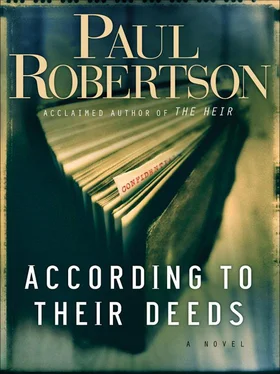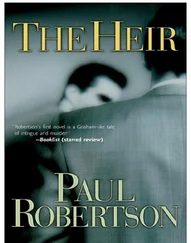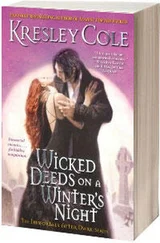Paul Robertson - According to Their Deeds
Здесь есть возможность читать онлайн «Paul Robertson - According to Their Deeds» весь текст электронной книги совершенно бесплатно (целиком полную версию без сокращений). В некоторых случаях можно слушать аудио, скачать через торрент в формате fb2 и присутствует краткое содержание. Жанр: Криминальный детектив, на английском языке. Описание произведения, (предисловие) а так же отзывы посетителей доступны на портале библиотеки ЛибКат.
- Название:According to Their Deeds
- Автор:
- Жанр:
- Год:неизвестен
- ISBN:нет данных
- Рейтинг книги:4 / 5. Голосов: 1
-
Избранное:Добавить в избранное
- Отзывы:
-
Ваша оценка:
- 80
- 1
- 2
- 3
- 4
- 5
According to Their Deeds: краткое содержание, описание и аннотация
Предлагаем к чтению аннотацию, описание, краткое содержание или предисловие (зависит от того, что написал сам автор книги «According to Their Deeds»). Если вы не нашли необходимую информацию о книге — напишите в комментариях, мы постараемся отыскать её.
According to Their Deeds — читать онлайн бесплатно полную книгу (весь текст) целиком
Ниже представлен текст книги, разбитый по страницам. Система сохранения места последней прочитанной страницы, позволяет с удобством читать онлайн бесплатно книгу «According to Their Deeds», без необходимости каждый раз заново искать на чём Вы остановились. Поставьте закладку, и сможете в любой момент перейти на страницу, на которой закончили чтение.
Интервал:
Закладка:
“I want to meet Karen Liu,” Charles said.
“What?” Dorothy straightened, and looked at him. “The congresswoman? Why?”
“I want to see what kind of person she is.”
Dorothy adjusted to the subject, smiling and frowning, both. “You’re worried about the checks.”
“In many ways.”
“Madame.” The veal had arrived. They ate.
“Well, it is the best La croustade de veau braise au Madere I’ve ever had,” Charles said.
“The only one you’ve ever had?”
“If there had been another, I would have remembered.”
“I’d have to say the same,” she said. And then, “Tell me more about Derek Bastien.”
“Yes. Let me see. Derek was a collector.”
“There must be more to him than what he owned.”
“I don’t mean just that. But he certainly owned a lot. He lived in a grand house and everything in it was special.”
“It was in Northwest, wasn’t it?”
“Yes, in Foxhall. The floor was Italian marble. The wallpaper was a replica of Thomas Jefferson’s. Everything was like that. His desk was originally Alphonso Taft’s.”
“Taft?” Dorothy smiled. “Is that a relation of President Taft?”
“His father. Alphonso was Attorney General in the 1870s. Derek didn’t buy things; he acquired them.”
“That’s the desk you were talking about.”
“Yes. It was typical. If he bought a toothbrush, it would probably have been ivory and once belonged to a Duke-or to the man who invented toothpaste.”
Dorothy poked her veal pastry. “He must have been independently wealthy.”
“He was, actually,” Charles said.
“How nice for him,” she said. “Did he have to work, then?”
“No. It was more of a hobby.”
“Did you say something about the Attorney General?”
“Deputy Assistant Attorney General, and Derek was not that person. That person is named John Borchard, and Derek was that person’s chief of staff.”
“So this Mr. Borchard person must work for the Assistant Attorney General.”
Charles shook his head. “No. The Deputy Assistant Attorney General reports to the Principal Deputy Assistant Attorney General, who reports to the Assistant Attorney General, who reports to the Attorney General.”
“Charles, that’s ridiculous.”
“They have that whole big building to fill. This particular nest of Deputies was in charge of pushing Congress on laws the Justice Department was interested in.”
“It sounds very bureaucratic.”
“That would be an understatement. He only did it as a game. He liked to play games.”
“You played chess with him?” Dorothy said.
“Yes. We would talk and play chess. Move and countermove and strategy.”
“That job isn’t my idea of a game.”
“Not exactly mine either. But Derek thrived on it.”
“How was he connected with Karen Liu?”
“I had Morgan look her up. She is on the House Judiciary Committee. She must have worked with Derek fairly often.”
And after fending off dessert, they were again on the street and the sky was polished ebony, reflecting the lights of the town in its stars.
“Home?” Charles said.
“Please,” Dorothy said, and they passed the incandescent shop windows and the curtained sitting-room windows; and where old trees reached over an even older street, and old brick sidewalks led past even older brick townhouses, they came to their own steps and front door.
“Were you serious?” Dorothy asked when they were inside, turning on their own sitting-room lights. “How do you meet a congresswoman?”
“I’ll call and ask.”
“They won’t let you in.”
“Then I won’t go. And if she does let me in, I will go.”
“But after that?”
“I will go on, wherever the wind blows.”
Dorothy settled into a deeply plush wingback chair beside the fireplace and opened a book from the table beside it. Above the mantel was a framed photograph of a much younger two of them and a teenage boy, the same face on Dorothy’s desk. “You will be tilting at windmills.”
Charles took his own book from the table. “I’ve always wanted to do that.”
“What do you think, Charles? Is Locke the greatest of the English enlightenment?”
“Now, come, Derek. You ask those questions just to be provocative. There’s no answer to that.”
“Who would rank with him, then? And don’t say Hume, he’s Scottish.”
“Newton.”
“Gravity is nice, but I’m speaking socially, politically.”
“I’m speaking philosophically. There are laws that govern nature, and laws that govern man’s nature. The Enlightenment isn’t limited to politics.”
“But, Charles! The end of philosophy is politics.”
“Politics puts an end to philosophy, if that’s what you mean. It’s hardly the intellectual end.”
“But politics is the practical end. And the practical purpose. What other use does philosophy have? Not personal, not for most people.”
“It is personal for them, Derek. They don’t call it philosophy. Most people call it values, or life purpose.”
“And for most people it’s a muddle. John Locke was concerned with the practical government of men, not some amorphous cloud of personal morals and beliefs.”
“Morals were vital to him!”
“An Enlightenment philosopher, Charles? He was far past religion.”
“Do you know his epitaph?”
“I believe I do.”
“Let me try to remember. There’s the part that says, ‘Of good life, you have an example in the gospel, should you desire it; of vice, would there were none for you; of mortality, surely you have one here and everywhere, and may you learn from it.’ That’s the message of his Essay. His theories of government don’t mean anything without his theory of human nature.”
“Yes, I know the epitaph. But he was a dying man when he wrote it. He’d lost his objectivity. What would you put on your tombstone, Charles?”
“Maybe the same as Locke. I hadn’t thought about it. What about you, Derek?”
“Do you mean when I’m in my dotage and trying to curry favor in the next world?”
“Oh, let’s say what you’d write now, still at the brazen height of your intellectual powers. If you were to die unexpectedly tonight, what would you want written as your memorial?”
“I would take the first part of Locke’s, that says that ‘His virtues were too few to mention, and may his faults die with him,’ and paraphrase it.”
“How?”
“Virtue and vice are too subjective. I would take modern properties that I value: ‘His knowledge of his fellow man was too great to describe, and may it die with him.’ ”
TUESDAY MORNING
“Good morning, Alice.”
She beamed at him like the morning sun. “Good morning, Mr. Beale. Good morning, Mrs. Beale.”
Charles climbed the stairs to the office. Morgan was already in his nook.
“On the hunt?” Charles asked.
“Yes, sir. There’s an auction in San Francisco next month.”
“Let me see.” Charles stood over Morgan’s shoulder and looked at the list. “A few things. I might call Jacob and see if he’s going. Do you see anything we need?”
“I’ll check against inventory. This is what’s up on eBay since yesterday. And Briary Roberts just put a bunch of new stuff on their website.”
“Did we sell anything?”
“Three volumes. Nothing big. I’ll mail them this afternoon.”
“Carry on.”
Dorothy was just sitting at her desk. Charles plopped down at his and opened the newspaper.
“Do you have plans for the day?” she asked.
It was in the morning that her voice was the most musical. “Tell me what you’ll be doing,” Charles said.
Читать дальшеИнтервал:
Закладка:
Похожие книги на «According to Their Deeds»
Представляем Вашему вниманию похожие книги на «According to Their Deeds» списком для выбора. Мы отобрали схожую по названию и смыслу литературу в надежде предоставить читателям больше вариантов отыскать новые, интересные, ещё непрочитанные произведения.
Обсуждение, отзывы о книге «According to Their Deeds» и просто собственные мнения читателей. Оставьте ваши комментарии, напишите, что Вы думаете о произведении, его смысле или главных героях. Укажите что конкретно понравилось, а что нет, и почему Вы так считаете.











